Prof. Chen Zhi, Director of Jao Tsung-I Academy of Sinology was invited by distinguished institutes, namely Columbia University, Harvard University, University of Oxford, University of Edinburgh, University of London, etc. to present and participate at various conferences and seminars in the past few years.
On 9 September 2016, Professor Chen was cordially invited to present at the Early China Seminar Program, a regular series of talks organized by Columbia University to facilitate inter-regional academic exchange and publicize new archaeological discoveries. He kicked off this year's series with a talk on "Xiaoyao and Shuchi: Some Special Uses of Alliterative and Rhyming Binomes in the Transmitted and Excavated Documents."
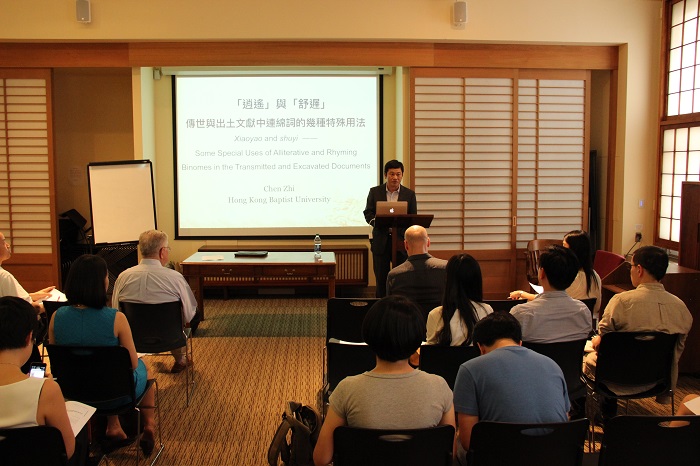
Professor Chen was also invited to the symposium "Du Fu (712-770), China's Greatest Poet: A Conference in Honor of the Library of Chinese Humanities" at Harvard University on 28-29 October. Together with Professor Xiaofei Tian, Professor of Chinese Literature at Harvard, they served as discussants of the first panel, "Du Fu in the Modern World". The conference was sponsored by the Andrew W. Mellon Foundation, Harvard University Fairbank Center for Chinese Studies, Harvard-Yenching Institute, and the Department of East Asian Languages and Civilizations at Harvard, and invited more than twenty distinguished scholars to present papers, including Professor Stephen Owen, expert on Du Fu study, Professor Ronald Egan from Department of East Asian Languages and Cultures, Stanford University and etc.
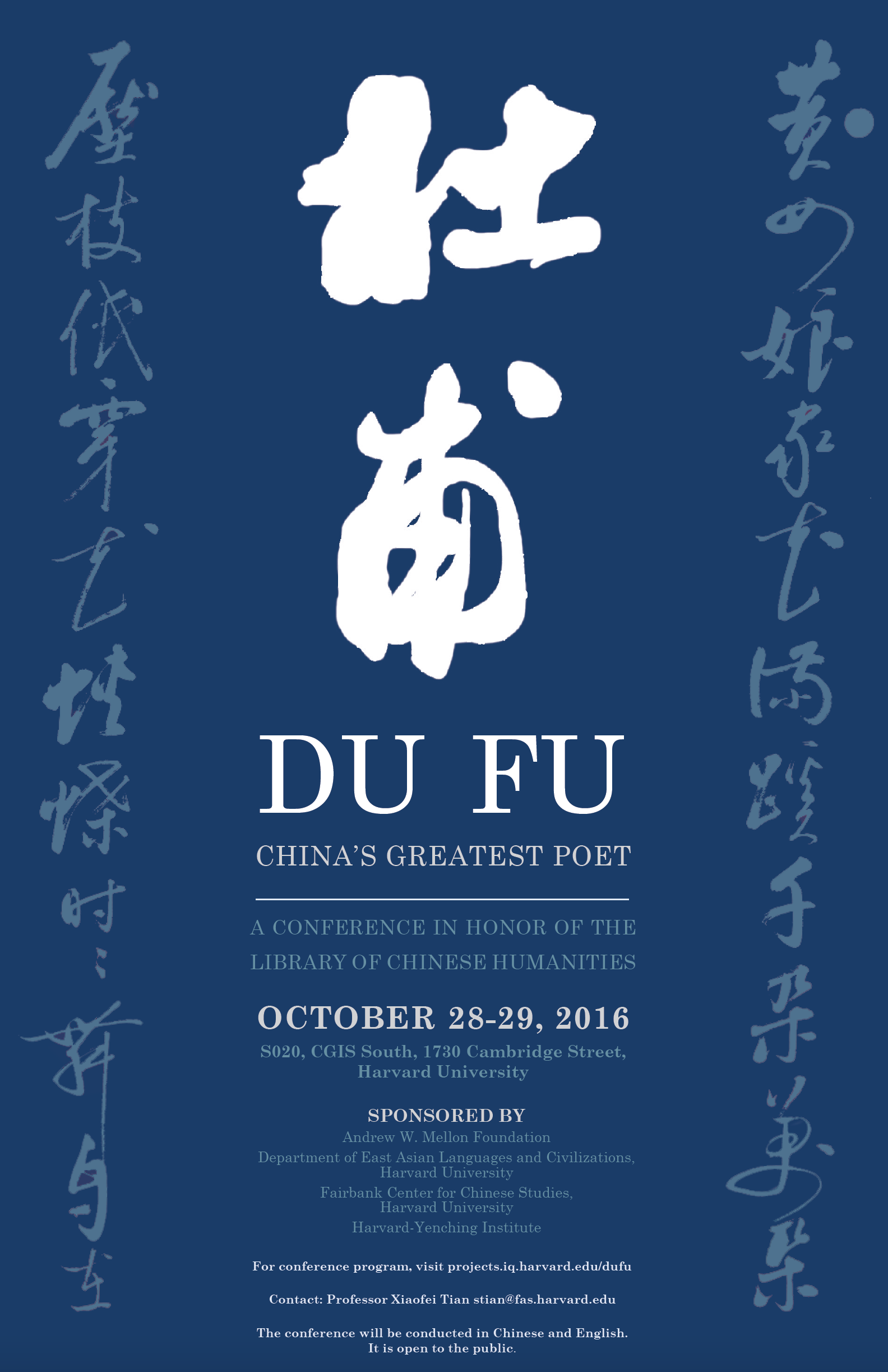
In the following month, Professor Chen Zhi paid a visit to the University of Oxford, and gave a seminar talk as a part of The Queen's College Early Text and Manuscript Culture Seminar on his latest research on "The Zhou Bronzes and the Shaping of the Tetrasyllablic Poems in China" at The Queen’s College on the 9th of November. On the next day, he chaired a graduate seminar on Ancient Chinese Bronzes at the University of Oxford China Centre. At both events, he shared with the audience his latest research findings on ancient Chinese bronzes, and took a range of questions from the enthusiastic audience, including queries about the material, textual and linguistic aspects of these materials and how to work with bronze materials.
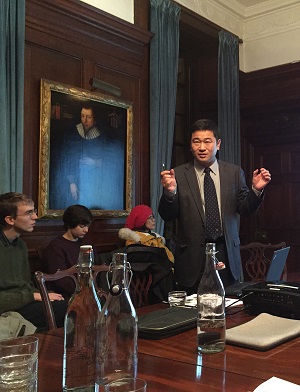
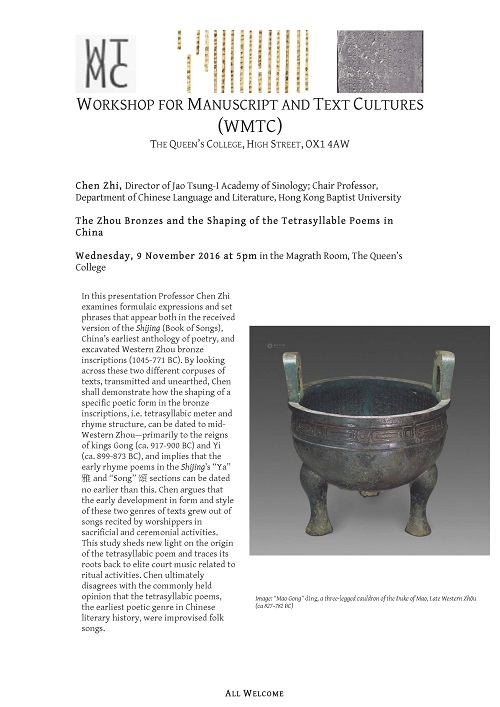
In April 2019, Prof. Chen Zhi’s first port of call was the Confucius Institute for Scotland at the University of Edinburgh, where he spoke of “Newly discovered bronze inscriptions of the late Shang and early Zhou dynasties and their significance for our understanding of early Chinese culture and classics” at the Distinguished Lecture Series.
Prof. Chen led the audience in reading the newly discovered bronze inscriptions of the late Shang and early Zhou dynasties and their significance for understanding early Chinese culture and classics. He demonstrated the importance of these excavated texts as sources that require close reading. Focusing on recently discovered 11th century BC bronze vessels, Prof. Chen also re-interpreted some of the texts of the transmitted Chinese Confucian classics, including the Book of Odes, the Book of Documents, and the Books of Etiquettes.
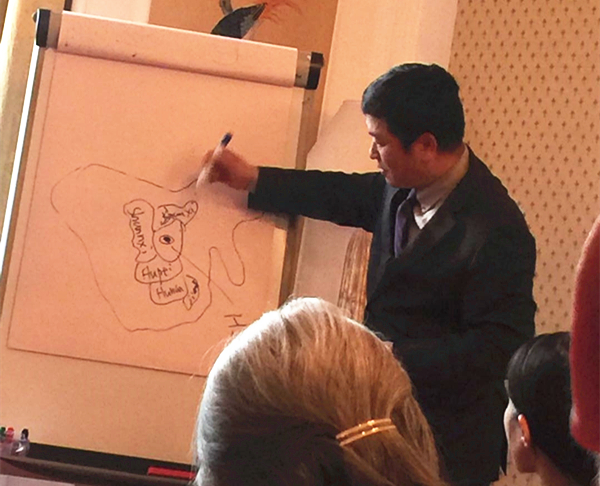
Prof. Chen’s next stop in April 2019 was the School of Oriental and African Studies (SOAS) at the University of London. As an invited speaker of the A. C. Graham Memorial Lecture series, he gave three lectures, first of which was on “Hidden Binomes in Chinese Canonical Texts: Both Transmitted and Excavated”.
Binomes are compounds of two characters that regularly appear together with distinctive meaning. Prof. Chen exemplified the initial exploration of how these binomes were hidden behind the extent texts, both transmitted and excavated, and explained how the binomes were used within received classical texts, bronze inscriptions, as well as bamboo and silk manuscripts. He showed how the analysis of these binomes can help people to better understand the inscriptions on recently excavated manuscripts, and provide new ideas to understand the received classics that have been misunderstood or misinterpreted.
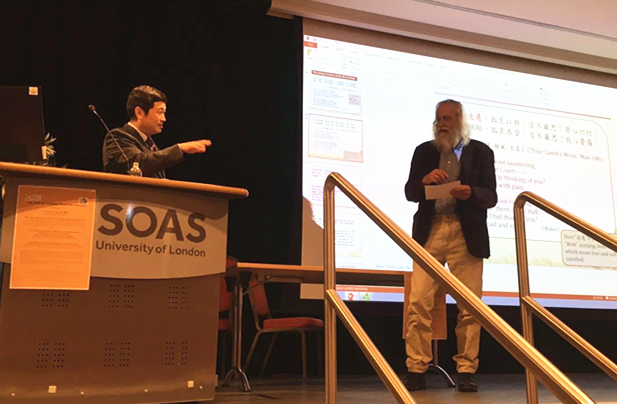
Prof. Chen Zhi then continued his sharing at the SOAS with a talk on “Tetrasyllabic Poetry on Bronze Inscriptions and the Zhou Hymns”.In this presentation, Prof. Chen demonstrated how the shaping of a specific poetic form in the bronze inscriptions can be dated to mid-Western Zhou. He explained that this implies that the early rhyme poems in the Shijing’s “Ya” and “Song” sections can be dated no earlier than this. He shed new light on the origin of the tetrasyllabic poem and traced its roots back to elite court music related to ritual activities, and disagreed with the commonly held opinion that the tetrasyllabic poems, the earliest poetic genre in Chinese literary history, were improvised folk songs.
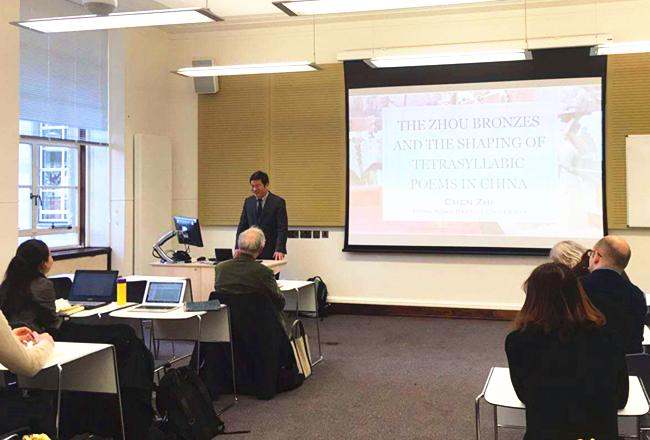
(Source of last three paragraphs: Beijing Normal University-Hong Kong Baptist University United International College [UIC] website)